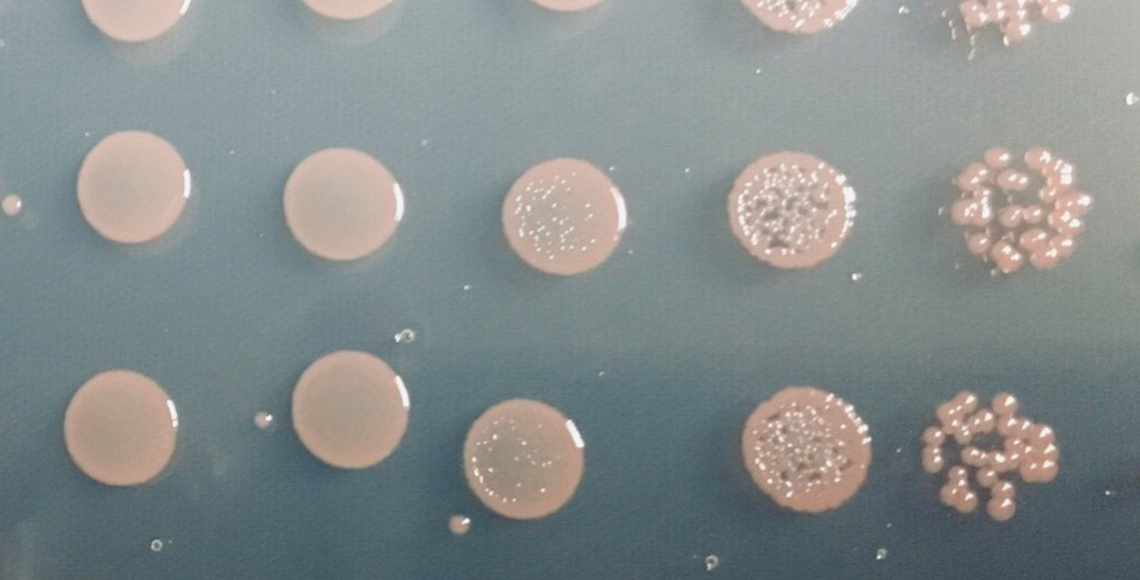Our lab seeks to define mechanisms by which organisms survive, and even thrive on, toxic metabolites with a current focus on formaldehyde in the beneficial plant bacterium, Methylobacterium extorquens. Our research necessarily uses genetic, molecular biology, biochemistry and omics methodologies to define mechanistic processes and answer biological questions at the molecular and organismal level.
During methylotrophic growth, organisms can use one-carbon compounds, such as methanol, as a sole source of carbon and energy. The first step in methanol utilization is conversion to free formaldehyde, a potent toxin that can inflict damage on cellular proteins and nucleic acids by adduction and cross-linking. Therefore, M. extorquens must deal with an apparent paradox during growth on methanol: 100% of carbon flows through formaldehyde as an intermediate, but uncontrolled production leads to cellular damage and death. Studying M. extorquens, a genetically tractable methylotroph, has the potential to reveal new metabolic paradigms that span stress response systems and novel mechanisms of cell regulation.
Research questions:
- What are the molecular mechanisms of formaldehyde damage and the stress response pathways that mitigate them?
- What processes are critical during the formaldehyde-imbalanced transition from multi- to single-carbon growth substrates?
- How does metabolic stress impact the ability of Methylobacterium to thrive in its natural habitat (plant leaves) and ultimately, the mutually beneficial relationship with its plant hosts?
